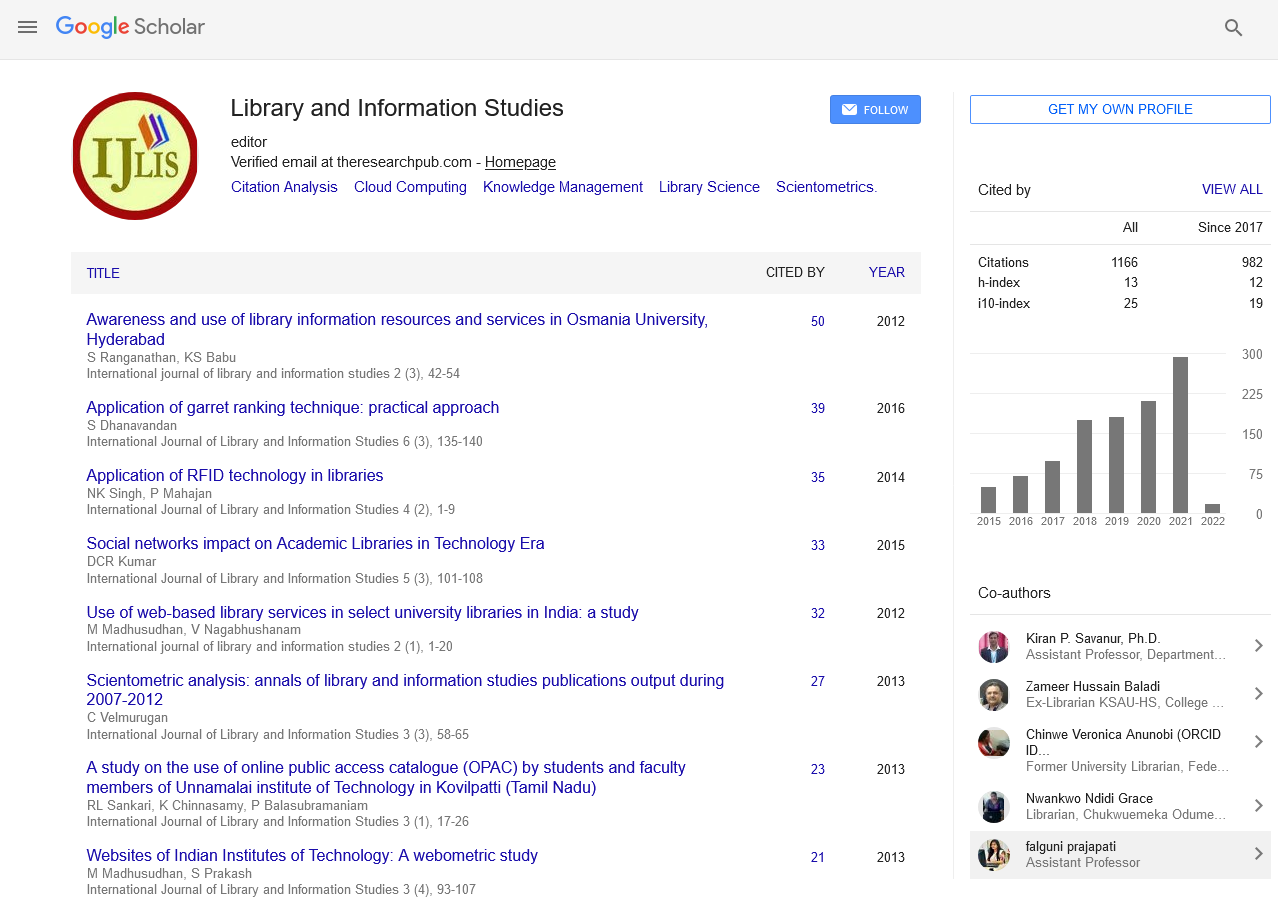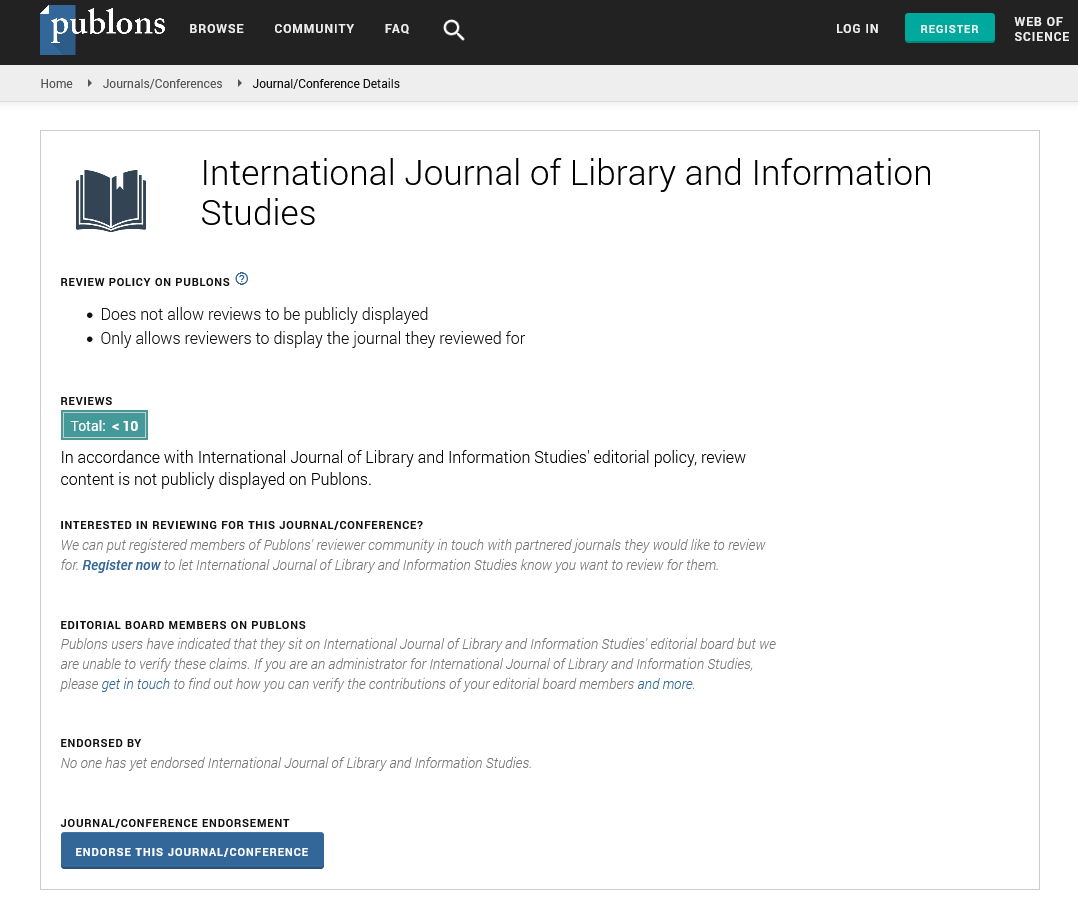

Digital Libraries: An overview of Standards, Protocols and Formats
Abstract
Author(s): Jayant Deshpande
The use of Information and Communication Technology (ICT) & digitization of the libraries facilitate easy & immediate access to information. Digitization of libraries has availed the libraries to keep pace with the latest development .This has additionally facilitated precision, flexibility and reliability in the library and information centre. Digitization of libraries reduces the perpetual work and preserves time and brings precision and speed & keeps material safe. It withal increases efficiency in technical processing of library materials and amend the efficiency of library administration and management. There are numerous challenges in organising a digital library (DL) and successfully get to the user the articles he/she wants. Some of the problems have already been addressed and a few more are yet to be solved. Various standards have already been developed in storage and retrieval of digital data which are described here. They range from the standards that cover Portable Document Format files through the standards that govern international cataloguing efforts to standards for searching. Others are still under development and are described in the state in which they are currently. In conclusion, standards are necessary for every aspect of the digital library. New standards are being developed by the formal international and national standards bodies and one set up especially for the purpose such as COUNTER has been highlighted
Call for Papers
Authors can contribute papers on
What is Your ORCID
Register for the persistent digital identifier that distinguishes you from every other researcher.
Social Bookmarking
Know Your Citation Style
American Psychological Association (APA)
Modern Language Association (MLA)
American Anthropological Association (AAA)
Society for American Archaeology
American Antiquity Citation Style
American Medical Association (AMA)
American Political Science Association(APSA)



